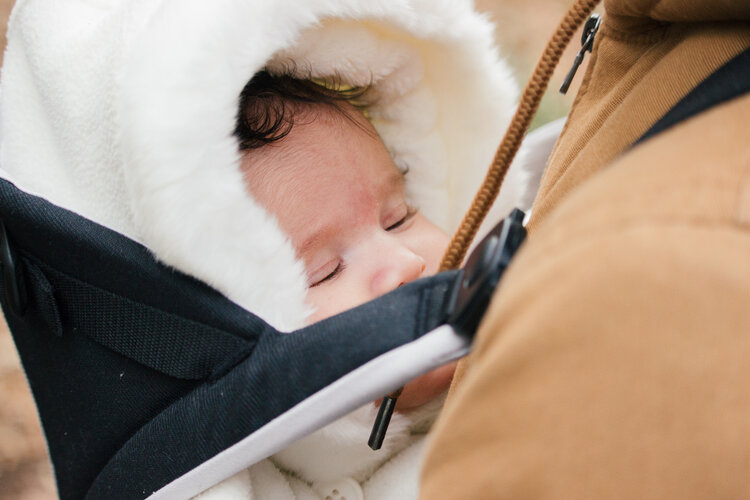
Everyone is adjusting and will respond differently to a new baby and all the household upheaval that follows. Some of this may be changes in behavior, particularly among younger children, that may look like they are going back in time. Children under the age of four tend to have the greatest difficulty with the birth of a sibling. This is because they lack the developmental awareness or experience to make sense of the new addition to the family and title of “big brother/sister.” These titles tend to have little meaning to them, so they are more surprised and distressed by the experience.
In addition, toddlers and preschoolers are in the midst of a number of developmental changes or have only very recently completed numerous developmental tasks, so they are most vulnerable to regression.
The primary areas in which children may change behaviors are the following:
Sleep
Young children who have been sleeping through the night may suddenly be up and out of bed during midnight feedings with the newborn baby. They are likely working through uncomfortable feelings that may disturb their sleep cycle. They may, unconsciously, wish to join their parents in the middle of the night to get that much desired attention and comfort that they have been missing since they had to split time with the new baby.
Potty Issues
Young children may become distracted by the new baby and forget to make it to the potty. They may also wish for a simpler time in their life when they received extra time with mom or dad on the changing table.
Feeding
Moms who breastfeed may find their older child trying to crawl into their lap, hang from their arms or shoulders, nudge the new baby while nursing, or ask to nurse themselves. Similarly, older siblings may ask for a bottle and/or pretend to suck from a bottle. It can be very difficult to tolerate seeing the intimacy of the connection and the time spent between a parent and the newborn, and the older sibling may very well want to be included in the attention.
Are there any times when it might be helpful for parents to indulge their child’s regression, in order to quell a child’s anxieties?
It is very appropriate to normalize a child’s behavior and concerns when a parent observes this kind of behavior. Parents can label the behavior and say, “You want to suck a bottle just like your baby sister and when you were a baby. That sure makes sense because it is so nice to be held and spend that time with mama.”
Parents should try and avoid lecturing their child. Instead, parents should focus on providing opportunities for special time and attention with their child. This time can be used to address the underlying fears and concerns about their relationship with their primary caregiver.
For instance, it can be tempting to sit and relax into checking email or scurry off to clean the kitchen when the baby is napping or resting in the bouncy seat. But this is also a great opportunity to spend 10-15 minutes with the older sibling in special time. Special time involves one-on-one time with a child in an activity of their choosing with no distractions.
What kind of age regression might be cause for concern?
If the age regression continues after the new baby has settled into the family (say, after five or six months), this is most likely signals that the older sibling is still struggling to receive the attention and connection they crave from their parent. In this instance, parents should revisit the type and amount of attention they are giving their older child and carve out special time with their child.
Source: We credit Dr. Laura Kauffman‘s interview posted by Christina Montoya Fiedler on The Mother Company for content and ideas for this section.
Resources:
Baby Center has great tips for preparing your 1-year old for a new sibling and for preparing your 2-year old for the new baby.





